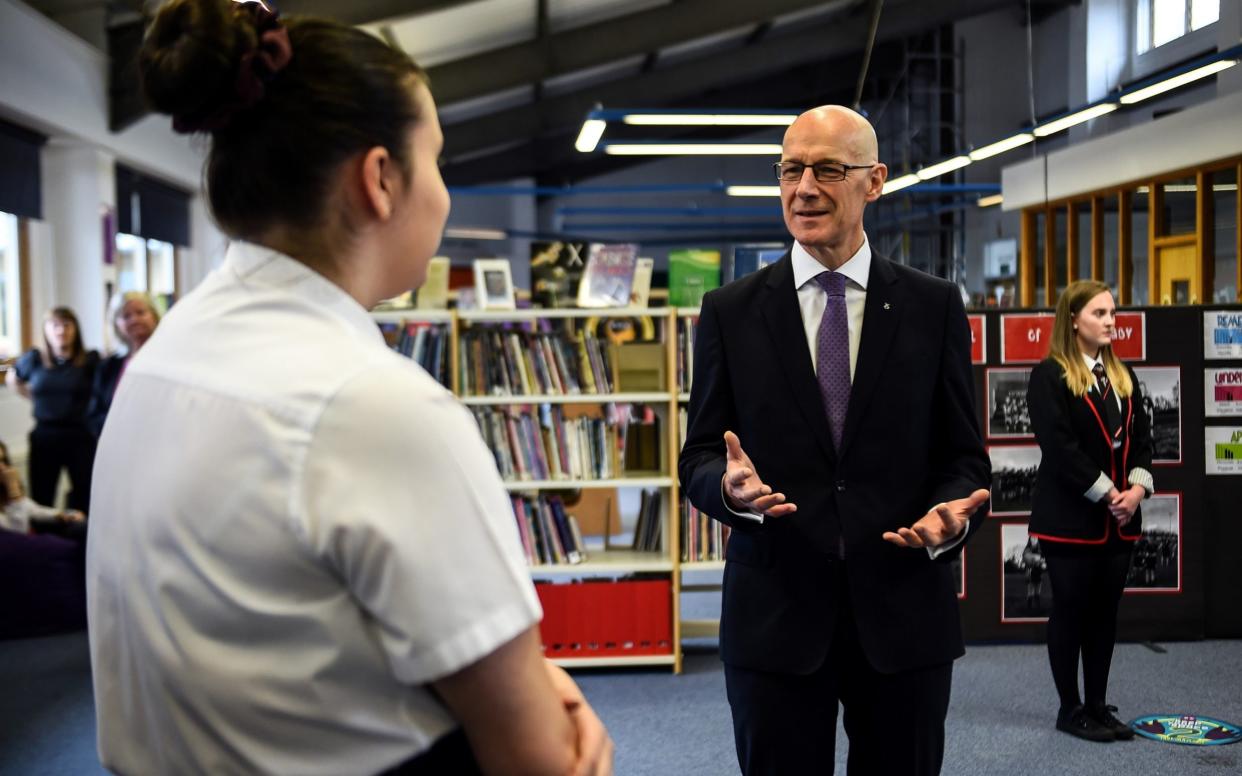Health officials 'in the dark' about second wave after SNP fail to deliver on schools testing pledge

A failure to deliver a promised “extensive” testing regime in Scottish schools means health officials do not know whether a recent surge in Covid-19 cases among children is fuelling a second wave of the virus, experts have said.
SNP ministers said in the summer that a large-scale programme of “surveillance testing” would be set up, to offer pupils, parents and staff reassurance of the safety of returning to classes.
However, it has not been set up and may never be, with officials admitting on Monday night that the “feasibility and acceptability” of such a system was still being assessed.
There has been a recent spike in cases among school-age children, with more than a third of five to 17-year-olds who have tested positive for the virus north of the border doing so over a two-week period this month.

There are fears that because young people are less likely to display symptoms, many more could be carrying the virus, and unwittingly passing it on to more vulnerable groups such as grandparents.
However, instead of a surveillance system, public health officials are forced to rely on those coming forward for tests, which means asymptomatic children are not included in figures.
Linda Bauld, a professor of public health at the University of Edinburgh, said it was impossible to say how much the virus had taken hold more widely among young people because of the lack of surveillance testing.
On July 30, Nicola Sturgeon said the system, earlier promised by John Swinney, would include sample testing of both staff and pupils without symptoms, and would be rolled out within “weeks”.
Monica Lennon, Scottish Labour’s health spokeswoman, said: “This surveillance should be happening to help identify the virus in those showing no or very mild symptoms. Undetected cases risk the virus being spread to the elderly and those with high risk factors.”
Of the 2,178 five to 17-year-olds who have tested positive in Scotland since the start of the pandemic, more than a third - 753 - did so in the two weeks to October 18, according to Public Health Scotland. Figures have not yet been released for last week.
When John Swinney announced schools would reopen without any social distancing or masks, he promised surveillance testing. It hasn't happened because he knows from Covid data in other countries that testing would show that schools are hotbeds of infection!https://t.co/R0T4IsuFjV
— Teacher Under the Bus ♀ 🇪🇺 (@DogLady2020) October 22, 2020
Prof Bauld said that while addressing problems with asymptomatic testing of NHS staff and care home workers should be the priority, testing asymptomatic young people was also important.
“If you look at the surveillance studies published in different parts of the world, it is absolutely the case that young people are less likely to display symptoms,” she said. “If you had a national surveillance system in Scotland you would find many more cases.
“But to what extent young people are unknowingly driving the increase in community transmission, we just don’t know.”
A scheme that allows teachers to put themselves forward for antibody tests, which show the likelihood that they have had the virus, has been set up. School and nursery staff are also given priority access to testing, even if they do not display symptoms. However, this is separate to the surveillance testing that was promised.
Nicola Sturgeon says some aspects of the enhanced surveillance testing system will be in place as schools reopen but testing on a sample basis "will be coming into effect over the coming weeks". Says fast access to tests for symptomatic staff and pupils will be available.
— Ailean Beaton (@AileanBeaton) July 30, 2020
Ross Greer, education spokesman for the Scottish Greens, said he had repeatedly pressed Mr Swinney to set up a regular testing programme in high schools, but his calls were rejected on the grounds that “enhanced surveillance testing” was sufficient.
He said: “We’re now almost in November, we know that transmission has taken place in schools but we don’t know either the extent of that transmission or whether this surveillance system is even fully operational yet. The only way to suppress and then eliminate this virus is with mass-scale regular testing, something the Scottish and UK Government are still, inexplicably, resisting.”
A Scottish Government spokesman said: “Public Health Scotland is working with the education sector to assess the feasibility and acceptability of a survey that involves PCR testing in older pupils and staff within a sample of schools.
“This survey aims to identify if there is any evidence of otherwise unrecognised Covid-19 positivity and to better understand any transmission within and between these groups.”


